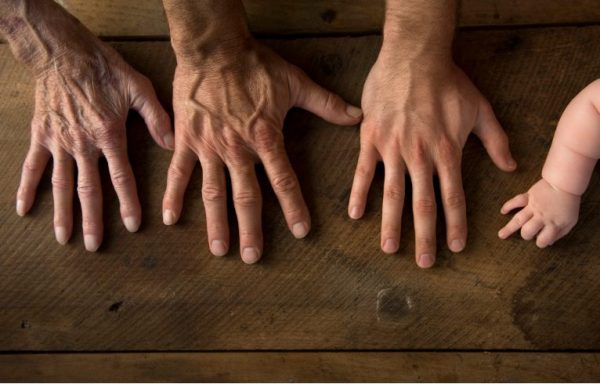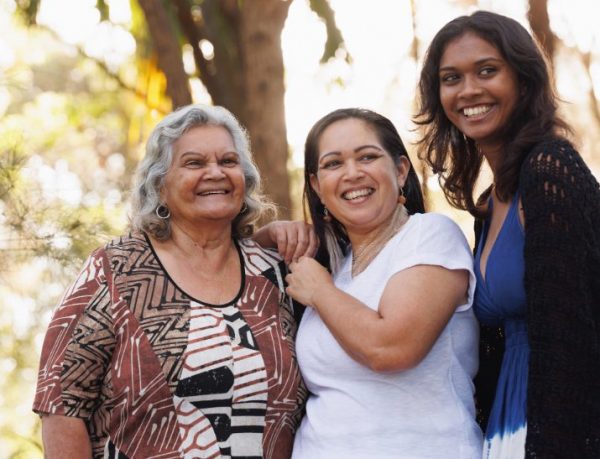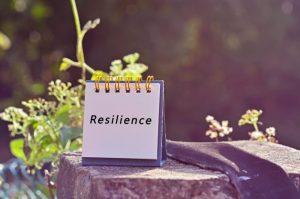Navigating the Impact of Generational Trauma on Personal Well-being
| Written by Allison Rosa, MA, LAC

Within the tapestry of our familial histories, the threads of generational trauma can often remain tightly woven, silently shaping the narratives of our lives unbeknownst to our own awareness. Passed down through stories, behaviors, and unspoken legacies, the echoes of ancestral pain and adversity have the power to deeply influence our human experiences and relational dynamics. Intergenerational trauma, with its profound capacity to influence individuals’ well-being and coping mechanisms, underscores the critical need for awareness, understanding, and healing within communities and family units.
Exploring the complex nuances of intergenerational trauma unveils the deep-seated roots of inherited pain and lays the groundwork for fostering resilience and empowerment in future generations. Through a comprehensive understanding of intergenerational trauma, we embark on a transformative journey toward breaking the cycle and nurturing a path of healing and hope for the generations to come. Through this journey, we can foster a path towards personal healing and resilience.
What is Intergenerational Trauma?
Intergenerational trauma is the inheritance of unresolved emotional and psychological wounds that are transmitted across future generations. Stemming from various sources such as historical events, cultural upheavals, and familial struggles, this form of trauma can profoundly impact individuals’ emotional well-being, relational dynamics, and overall quality of life. Recognizing the deeply entrenched nature of intergenerational trauma is the first step toward breaking the cycle and fostering a path toward healing and resilience for future generations.
Intergenerational Trauma: A Case Example
What can intergenerational trauma look like? Let’s take a closer look into an example in which the echoes of intergenerational trauma resound through the lives of three generations of women, we’ll call these examples Maria, Elena, and Ariana.

Maria, the grandmother, endured the harsh realities of poverty and domestic abuse in her formative years, seeking solace in the prospect of marriage as her ticket to freedom from her broken home. The outbreak of war further deepened the emotional chasm within her family, as her husband’s deployment cast a looming shadow of emotional detachment that seeped into the dynamics of their familial bond. Maria, constantly in a fight-or-flight state of mind, sought out looking for control in any areas she possibly could.
Maria’s daughter, Elena, bore the burden of her mother’s unfulfilled emotional needs and the stifling grip of poverty, perpetuating a cycle of emotional distance and instability within her own marriage. Elena, too, viewed marriage as an escape and ability to achieve resources, hoping to achieve emotional fulfillment from a partner as she has had to pour into the empty emotional void of her mother. Later, Elena sought the same fate in realizing her husband was also emotionally distant and frequently preoccupied with work obligations.
Their daughter, Ariana, then grew up observing the dynamics between her parents as cold and emotionally distant, frequently attempting to aid her mother’s emotional distress. With a profound yearning for control and stability, Elena found solace in her daughter’s outward academic and work achievements, showering her with conditional praise that often resulted in the nurturing emotional support she yearned for.
This emotional legacy found its echo in the life of Ariana, whose anxious attachment style and relentless pursuit of external validation carried the weight of her predecessors’ unspoken narratives, compelling her to navigate the delicate balance between self-actualization and the enduring echoes of generational trauma. Ariana’s current struggles with anxiety, lack of fulfillment, and frequently feeling as though she will never be good enough led her to therapy to explore the core issues of her difficulties. As you may notice, the view of marriage as an escape to gain resources along with emotional distance demonstrated a prevalent theme among the generations.
Understanding the Complex Causes of Intergenerational Trauma
The causes of intergenerational trauma are multifaceted, often stemming from a combination of environmental factors, historical legacies, cultural influences, and even genetic predispositions. Unresolved trauma from past generations can manifest in various ways, permeating family dynamics and shaping individual behaviors and coping mechanisms. 
- Environmental factors include our experiences, exposures, and community. Some examples of environmental factors include socioeconomic disparities, systemic inequalities, war and political climate, community-wide crises, natural disasters, and other experienced traumas.
- Cultural influences can often stem from shared historical struggles, representing the pride and resilience within the practices themselves. Cultural influences can include the passing down of specific practices, which have adapted from a collective trauma towards a cultural group. In Jewish culture, the tradition of Passover echoes the resilience amidst past persecution, symbolized through the Seder meal and the Exodus tale. Similarly, Puerto Rico’s bomba and plena music originated from a history of slavery and colonialism, serving as a powerful expression of cultural identity and resistance. Black cultural influences, deeply shaped by the struggles of slavery and systemic racism, find expression in traditions like gospel music and the vibrant art of storytelling, serving as poignant narratives of perseverance and cultural pride.These practices reflect a deep-rooted solidarity and endurance, transcending the shadows of historical trauma. In addition to the aforementioned cultures, various cultural groups have maintained a profound connection to their ancestral roots, fostering a sense of empowerment and cultural solidarity that transcends the confines of historical oppression.
- Genetics can play a substantial role in generational trauma, showing its changes in DNA among subsequent generations. The emerging field of epigenetics has shed light on the complex mechanisms through which environmental factors, including exposure to trauma, can induce heritable changes in gene expression, underscoring the profound influence of generational trauma on the biological inheritance and emotional well-being of descendants. This growing body of research emphasizes the need for a holistic understanding of trauma’s multigenerational impact, underscoring the transformative potential of intergenerational healing and the cultivation of resilience within familial and communal contexts. Even if the traumatic event didn’t happen to you, you may feel a sense of hypervigilance towards certain stimuli that feels unexplainable.
Exploring the intricate layers of these causes helps illuminate the deeply embedded roots of intergenerational trauma, underscoring the significance of addressing these underlying issues for comprehensive healing and long-term well-being.
Recognizing the Signs and Symptoms of Generational Trauma
Generational trauma can manifest in a myriad of ways, impacting individuals’ emotional, psychological, and behavioral well-being. From pervasive feelings of anxiety and depression to patterns of avoidance and emotional detachment, the signs of intergenerational trauma often permeate individuals’ coping strategies and interpersonal relationships. Understanding and identifying these signs is essential in laying the groundwork for effective intervention and developing personalized strategies that foster healing, resilience, and healthy emotional expression.
Intergenerational trauma is often characterized by an emotional landscape watered down by a profound disconnection, rendering individuals less emotionally available for later generations. This disconnection can be literal – meaning we ostracize ourselves or others from our family line. But more often than not, it shows up as a sense of emotional absence, creating a constant feeling of being emotionally distant or unreachable.
This can be extremely difficult to put into words, but often comes with a sense of just “knowing.” How can we truly explain how distant a present and active family member can be? The emotional absence is always felt, even if we can’t necessarily put it into words. A sensation within the body, a feeling of tension or uncomfortability, a deep-rooted feeling of being misunderstood, conflicts being swept under the rug leaving you feeling unresolved, or just something about a family member that feels foreign to you. It is, simply put, an emotional disconnection that you have somehow adapted to.
However, the healing process involves building connections – with oneself, with a supportive community, with spirituality, or any other form of connection. This journey helps individuals break free from this cycle of emotional distance, fostering a sense of belonging that goes beyond the constraints of their familial history. Even if “connection” itself feels foreign, the eventual achievement of connection may bring some internal sense of resolution.
Breaking the Cycle: Empowering Paths to Healing and Resilience

Breaking the cycle of intergenerational trauma requires a comprehensive approach that involves recognizing and acknowledging the trauma, seeking professional help and trauma-informed therapy, and developing resilience through tailored coping strategies.
By fostering an environment of open communication, empathy, and understanding within families and communities, individuals can embark on a transformative journey toward healing, empowering future generations to embrace their narratives with resilience, compassion, and hope.

To assess the presence of generational trauma within oneself, it is crucial to embark on a journey of introspection and self-awareness, delving into the potentially complicated history of one’s family legacy and emotional experiences.
Begin by examining the recurring patterns and themes that have shaped your family dynamics, paying close attention to any persistent cycles of emotional suppression/numbing, codependency, conflict patterns, relational conflict, or unspoken narratives that have permeated your upbringing. Reflect on the ways in which the emotional legacies of previous generations have influenced your own perceptions of self-worth, emotional expression, and interpersonal relationships. Identify any unaddressed emotional wounds or persistent behavioral patterns that resonate with the experiences of your ancestors, and consider the ways in which these patterns have impacted your own emotional-wellbeing and sense of identity.
Through this process of introspection and self-exploration, you can begin to unravel the treads of generational trauma woven within the fabric of your own lived experiences, fostering a deeper understanding of its impact and paving the way for transformative healing and resilience.
Conclusion: Nurturing Empowerment and Building a Better Future
The journey toward healing from intergenerational trauma is a testament to the resilience and strength that reside within individuals and families. By addressing the deeply rooted sources of trauma and fostering a culture of open dialogue and emotional support, we lay the foundation for a future defined by empowerment and emotional well-being. Through a collective commitment to understanding and healing, we pave the way for future generations to embrace their stories with courage, resilience, and a profound sense of self-empowerment.
In the history of inherited pain also lies the resilience of generations woven with the threads of healing and hope, striving to break free from the cycle of intergenerational trauma.
Allison Rosa is a Certified Trauma Professional, who specialized in Victim Counseling during her graduate program. Using person-centered techniques, Allison helps others to rewrite their trauma narratives. Allison is also an EMDR-trained therapist.
Check out Allison’s professional bio here.
Email Us: info@exceptionalwellnesscounseling.com
Call Now: (908) 415-2042
NEXT STEPS & RESOURCES
-
- Are you ready to take your first step? Reach out to us.
- Do you feel you may benefit from counseling during this time? Take the first step.
- Interested in online counseling? Learn more
- Interested in group counseling? Learn more

